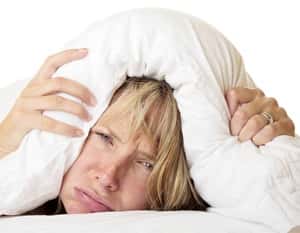
Millions of people suffer chronic insomnia. They toss and turn and worry about the consequences of inadequate sleep. The trouble is that almost all the drugs that are prescribed come with side effects. This reader has a bad sleeping problem but is a benzodiazepine like lorazepam the best solution?
Q. I’ve always had problems with insomnia. A few times every week I would get only two or three hours of sleep a night. Four months ago, I was lucky if I slept six hours even one night a week.
My doctor prescribed lorazepam. I take it nightly and it seems to work most of the time. Nothing else worked: chamomile tea, warm milk or reading to relax.
I told him about my fear of addiction, and he said I should not worry unless I felt the need to take more than one tablet a night. He added that I might need to take these the rest of my life if I want to sleep at night. That worries me. What do you think about taking this medication for a long period of time?
A. Lorazepam (Ativan) is a benzodiazepine, meaning it belongs to a class of anti-anxiety agents like alprazolam (Xanax) and diazepam (Valium). The official prescribing information states that lorazepam is for “the short-term relief of the symptoms of anxiety” and doesn’t mention insomnia.
The Official Stance on Benzos for Insomnia:
The FDA warns about adverse reactions such as depression, dizziness, unsteadiness, confusion and memory problems. Nine out of ten studies in one review found an increased risk of dementia among long-term benzodiazepine users (Expert Opinion on Drug Safety, May, 2015). Not all scientists are convinced that this is a problem, but your concern may have merit.
We are sending you our Guide to Getting a Good Night’s Sleep for information about sleeping pills and many other approaches to overcoming insomnia. This recently revised 16-page downloadable guide is available at PeoplesPharmacy.com.
NEVER Stop a Benzo Suddenly!
Your physician said that you had no worries with lorazepam as long as you do not increase the dose. Should you ever need to stop, though, please consult your doctor and do not stop suddenly on your own. The withdrawal symptoms can be serious and unpleasant.
Symptoms of Benzodiazepine Withdrawal:
- Anxiety, agitation, restlessness
- Irritability, sensitivity to light, touch and sound
- Difficulty concentrating
- Insomnia that may be worse than before
- Panic attacks
- Memory problems
- Depression
- Headache
- Fatigue
- Muscle cramps, muscle twitching
- Seizures
- Sweating
- Digestive problems including diarrhea
Gradual tapering of the dose over several weeks or months may be necessary if you have to stop lorazepam. Your doctor may need to switch you to a different benzo with a longer half life to make this process easier. Our Guide to Getting a Good Night’s Sleep will provide some other options.

